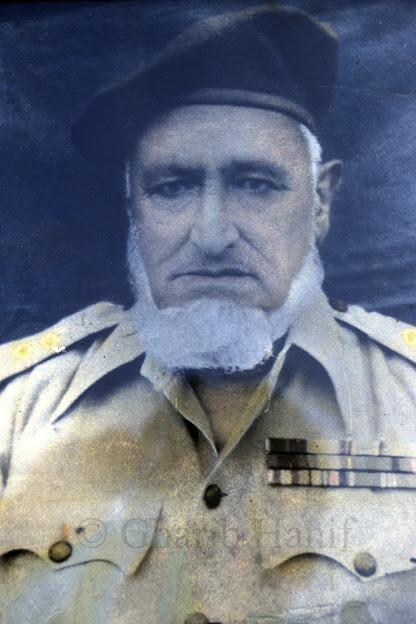Hast-o-Bood Part-13
Chapter Two
The concept of patriotism and nationality
Therefore, the life and biography of Hadi Barhaq (PBUH) is an open book in this category. Evidence from hundreds of events in your Makkey and Madani life interprets these ideas. Below are a few examples that will be of interest and awareness to readers.
On one occasion, a delegation of Banu Thaqif consisting of dignitaries of this nation succeeded in the service of the Holy Prophet (sws). This delegation was present in Medina in 5 AH. Mughirah ibn Shu'bah (may Allah be pleased with him) said, "These are the people of my nation [tribe]. If I have permission, let me stay with them for their sake. The Prophet (PBUH) allowed him and said "but do not forbid them, but make them a place where the sound of the Qur'an falls on their ears. "”
Among the captives of the Battle of Badr was Syedna Abbas also, the real uncle of the Holy Prophet. He had not yet converted to Islam. He was given exercises along with other prisoners of Makkah and in this condition he kept moaning in pain all night. Hazrat Rahmat Aalam became restless on hearing his voice and he did not rest until the musk of Hazrat Abbas RA and all his captives were loosened and such a merciful reward was given to the relatives. An example of was set. Which is also a proof of the compassion of the Holy Prophet even though they all came to destroy the religion of Islam and its followers.
Another incident of merciful dealings with one's relatives is related to the family of the Prophet (peace and blessings of Allaah be upon him). Abu al-'Aas, the son-in-law of the Prophet (peace and blessings of Allaah be upon him), was arrested in Madinah. Muhajir and Ansarullah shared his wealth among themselves. When the Prophet (peace and blessings of Allaah be upon him) came to know about this incident, he said, "Everyone knows that Abu al-'Aas is related to me." It belongs to the religion, but if you give it back to him, I will like it, but if you do not want to do so, then you are more entitled to this wealth. They returned-back all snatched goods.
For the liberation of Abu Al-Aas, his married daughter of the Prophet (peace be upon him) Hazrat Bibi Zainab (RA) sent a necklace as a ransom in the dowry given by her mother Hazrat Khadija Al-Kabra (RA). The memories of beloved wife was refreshed and the Prophet (peace and blessings of Allaah be upon him) was overwhelmed with grief. Not only was his son-in-law, who was still in disbelief, released, but the gold necklace was also returned to Syeda Bibi Zainab. Dozens of events from the time of the Prophet (peace and blessings of Allaah be upon him) provide clear evidence of mercy and love, and pave the way for us to show loyalty and kindness to our loved ones.
Similarly, on the occasion of the conquest of Makkah, the Prophet (peace and blessings of Allaah be upon him) treated the Quraysh of Makkah and the other conquerors with kindness and mercy. For the conquest of Makkah, Lashkar-e-Islam is organized nationally (tribally) and under the leadership of the chiefs of their respective nations (tribes), it is marching towards Makkah in the same order.
One-sided observation was made to Abu Sufyan Sardar Quraysh through Hazrat Abbas RA which imprinted Islamic greatness in his heart. The Lashkar-e-Islam was organized in such a way that the tribe of Banu Saleem in their chief Abbas bin Marwas Salmi as the head of the army as the case of Al-Jaish, the Islamic platoon of Bannu Jahniya under the leadership of their chief Under the guidance of Nu'man ibn Munther, the Banu Tamim under the leadership of their chief Aqra ibn Aswad, and the Banu Humaira under the command of their Wajiha Kalbi to subdue the infidels of Makkah, Under the tutelage of Ammar Ibn Isa, the Banu Hashim themselves were advancing under the leadership of their chief Fazl ibn Abbas. Apart from them, other tribes who had been blessed with the blessings of Islam were on their way to Mecca under the supervision of their fellow nation leaders.
To be continue ...



Comments
Post a Comment